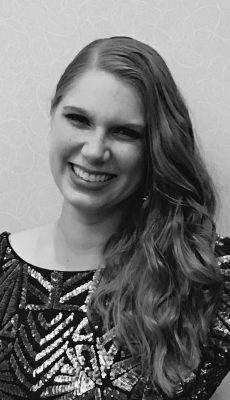Student Spotlight: Lauren Griffin

What is your area of research?
I study the sociology of families and relationships. Specifically, I investigate how gender dynamics in romantic relationships manifest in inequalities at home and in the workplace. In my dissertation, I am examining the process of transitioning from cohabitation into marriage, with a focus on engagement proposals. This work analyzes how engagements are timed and negotiated among cohabitors and whether the process is shaped by gender, social class, or parental status.
What inspired you to choose this field of study?
I see sociology as one of the most relevant fields of study for examining our everyday lives. I’m fascinated by people and sociological research helps me understand why people behave the way they do and why the social world works this way. In terms of my specific interests, I am interested in gender not just as an identity category at the individual level, but as something that structures our social interactions and institutions. By studying gender as a system that organizes society, sociologists gain a better understanding of culture, status, norms, and inequalities.
Why is this research important?
Women’s position in society has greatly improved in recent decades. However, it’s important to look at gender dynamics not just at work but also at home. Because gender roles are much more rigid in the family, we might think of this as one piece of a sort of “stalled gender revolution”. Although intimate relationships are seen as personal and private, the specifics of these relationships can illuminate how larger social structures influence seemingly individual behavior.
How do you integrate research into your teaching or vice versa?
I integrate my research and teaching in a variety of ways, from conducting research on teaching and learning in the classroom to designing courses based on my interests. While participating in the Scholarship of Teaching and Learning Program at Cornell, I conducted a small-scale research project on student perceptions of learning objectives and writing prompts. I also use my own research to directly inform my teaching. Thanks to a Buttrick-Crippen fellowship from the Knight Writing Institute, last year I was able to create a First-Year Seminar inspired by my own research interests. The course was titled “Modern Romance: Dating & Relationships Among Young Adults” and concentrated on patterns in contemporary romantic relationships with an emphasis on gender, race, social class, and sexuality.
How has your background influenced your scholarship and teaching?
As a sociologist, the ways in which our background and identities influence our research and teaching are distinctly evident to me. I happen to study the things that are the most interesting and visible to me in society right now. In terms of teaching, my identity as an instructor is primarily shaped by my undergraduate studies at a small liberal arts school. During my time there, I learned the value of discussion in the classroom and I now aim to build courses that ask students to take ownership over the learning process.
I understand you recently received a travel grant from CIRTL at Cornell. How did you learn about this grant and what was the process of applying like?
Cornell’s Center for the Integration of Research, Teaching and Learning has been an integral resource for me during my time as a graduate student. I have participated in numerous workshops, courses, and events organized by CIRTL, and knew that they provided travel grants for graduate students to pursue training in evidence-based teaching and/or present research on teaching and learning. The process of applying was very straightforward and it’s really great to have support to pursue these professional development opportunities.
Can you tell me about the conference itself and what you presented there?
I attended the American Sociological Association’s Annual Meeting earlier this month and participated in a few different activities. This year, the inaugural Teaching & Learning Symposium was held at this conference, which was a fantastic addition of sessions focused on teaching and learning in the discipline. Presenters shared practical techniques, new teaching activities and approaches, and tips for effective responses to complex teaching challenges. I presented on using sociology to teach writing by connecting the principles of strong writing to sociological topics such as self-presentation and online dating. I was also able to attend the Teaching & Learning Pre-Conference, which provided a space for sociologists to share ideas about best practices in teaching within the field.
What’s next for you?
Dissertation research!
